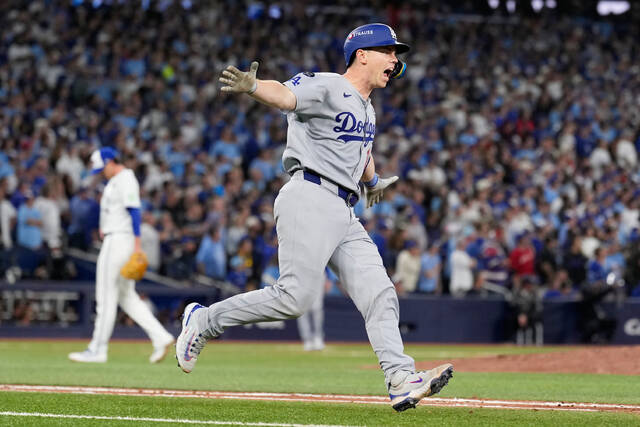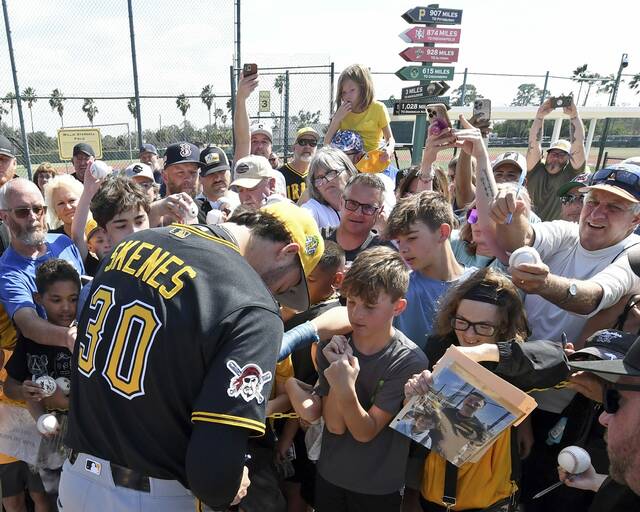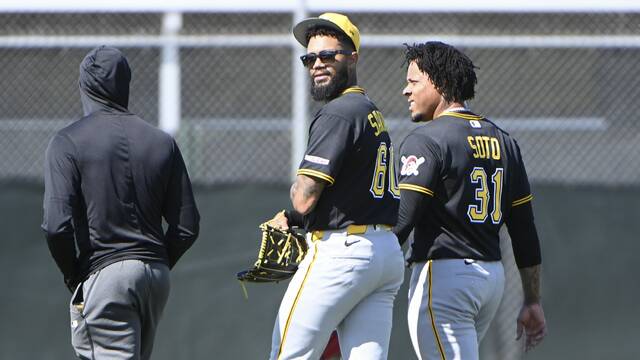If the Los Angeles Dodgers “ruined baseball” by winning the World Series, a heck of a lot of people witnessed them do it.
Despite the alleged demise of the entire sport by way of L.A.’s appearance in — and eventually claiming of — the 2025 World Series, their Game 7 victory over Toronto was remarkably well viewed despite some inherent challenges before pitch No. 1 was ever thrown.
Even though the game was on a Saturday night and a lot of the rooting interest was in Canada, ratings for L.A.’s extra innings win were outstanding.
According to SportsMediaWatch.com, nearly 26 million people watched that game. The outlet claims that’s the largest Saturday MLB audience since 1996. The total made the Dodgers’ victory the most-watched MLB game since 2017.
The outlet went on to say that the last college football game with a bigger Saturday audience was the 1994 Orange Bowl. Since Game 6 of the 1996 World Series (when the Yankees beat the Braves for their first ring since 1978), the only Saturday night sports events to draw more eyes to televisions were NFL games and Olympic events.
Nearly 26 million for World Series Game 7, largest Saturday MLB audience since 1996. Surpasses previous WS Game 7 in '19 (pre out-of-home viewing) to rank as most-watched MLB game since '17.
— Sports Media Watch (@paulsen_smw) November 3, 2025
Last CFB game with bigger Saturday audience: 1994 Orange Bowl: https://t.co/52iRPnYmP7
The only major championship sporting event that regularly airs on a Saturday night is the NCAA Men's Final Four, and none of those national semifinals have ever drawn as big an audience as Game 7. (Obviously Nielsen methodological changes provide a big caveat.)
— Sports Media Watch (@paulsen_smw) November 3, 2025
From what I can tell, Game 7 was the most-watched Saturday sporting event -- excluding the NFL and the Olympics -- since Game 6 of the 1996 World Series.
— Sports Media Watch (@paulsen_smw) November 3, 2025
So if the Dodgers killed baseball, at least it’s nice that so many folks showed up for the funeral.
The truth is, the Dodgers didn’t kill baseball by winning the World Series this year. Apparently, if baseball was still alive in order to be killed in 2025, the Dodgers must not have killed it when they won the World Series last year, either. Or in 2020.
Nor did the sport die any of the four times the Boston Red Sox have won the title over the last 21 years. Same for the Yankees, any of the 27 times they claimed the crown.
The “(fill-in-the-blank, big-market, large payroll, team) is killing baseball” argument is a red herring. The Dodgers, Yankees and Red Sox aren’t bad for baseball. The Pirates, White Sox, Rockies and Athletics are.
Teams that don’t try to win are bad for sports. They are much, much worse for any sport than the rich ones that spend to win.
Is baseball’s economic system bad for itself? Well, based on those TV ratings, no. Bigger markets. Bigger payrolls. More stars. More people watch the games. It’s a self-fulfilling prophecy.
And, please, before we turn the Blue Jays into “The Little Engine That Could,” let’s remember their payroll was $255 million, fifth-highest in baseball.
Would baseball have been “saved” if the quarter-billion-dollar Blue Jays won? C’mon. Spare me.
There’s a difference between “bad for” and “unfair for.” Indeed, the economic system of baseball is completely stacked for major market teams to win.
But it’s also one that includes signatures on the collective bargaining agreement from all the small-market teams involved. The lower-revenue teams knew what they were getting into and acquiesced to a system that marginalized any hope for competitiveness for them, yet assured economic interests.
Maybe all of us can remember that when the CBA negotiations go on in 2027. That’s when the time is right to holler about big market oppression in baseball. If not in CBA years on the calendar, during the hot stove season, when massive contracts are being thrown around to marginal players.
If you wanna cry, cry in December and January.
If you are letting the economics dampen your enjoyment of the sport when it’s 99% over and the two best teams are putting on an epic display of the game, then you just don’t like the sport enough.
The business of baseball isn’t going to be fixed in October of any year. Watch it or don’t. However, the pearl-clutching routine about the alleged financial ills of the game during what was otherwise a highly compelling postseason felt forced and out of place to me.
It’s like showing up to a Halloween party and complaining about how much you spent on your costume. Stay home if it bothers you that much. There are three other couples dressed like Taylor Swift and Travis Kelce over by the keg.
Mad about the economics of baseball? Me too. I get it. That said, if you don’t want to watch Game 7, put on “Saturday Night Live.” Watch it instead and go to bed after “Weekend Update” like America has been doing for the past couple of decades.
Just don’t wag your finger at me for watching Game 7 of the championship round because I still like watching the game when it’s played well.
I’m a die-hard Pirates fan. I have been my whole life. Sadly, though, I died pretty hard a long time ago. Yet I can still separate my appreciation for the sport from my anger over what the sport has done to my favorite team.
Not to mention what the guy who runs that team has done to hurt the cause.
These are two different arguments. The first is the health of the game. The other is, “How good is the game when two healthy teams are playing it?”
For one game, or one series, or one month of playoffs, I can still focus on the second part without feeling the need to obsess over the first part.
Especially since no matter how hard any of us obsess, it’s not going to make a difference.
LISTEN: Mark Madden and Tim Benz discuss the World Series, the Steelers and the Penguins.









